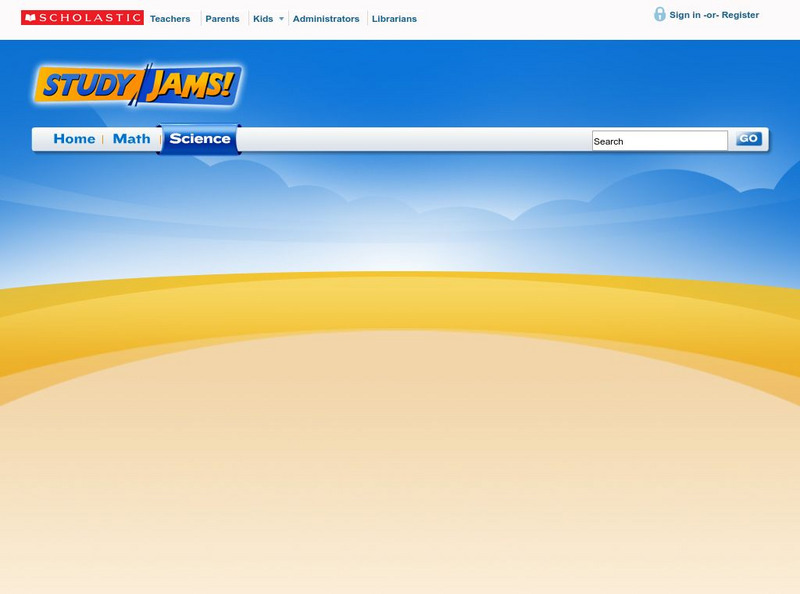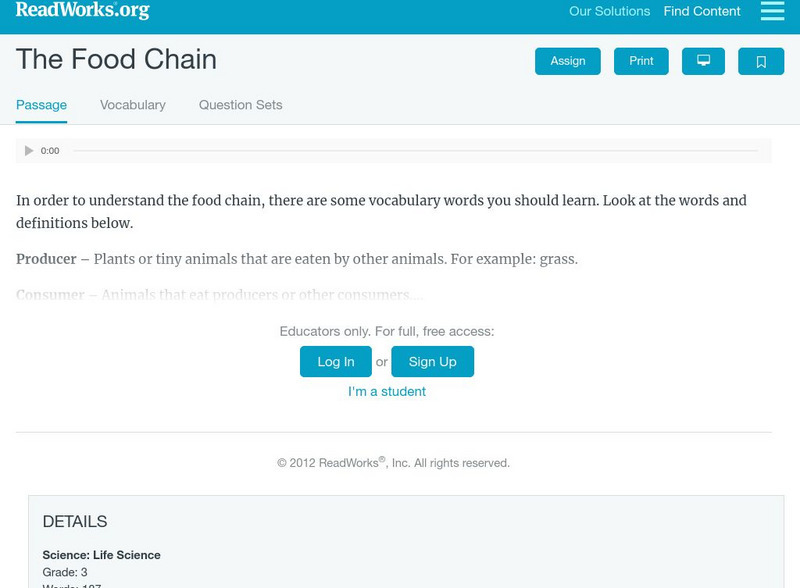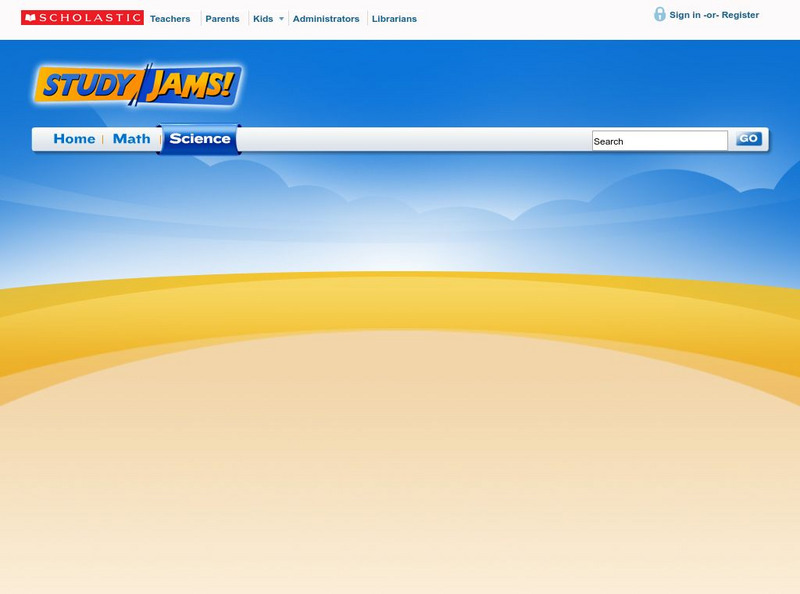SMART Technologies
Smart: Ecosystem Food Chain and Food Web
Starts with living and non living and works through producers, consumers, food chains and food webs.
E-learning for Kids
E Learning for Kids: Science: South Africa: How Do Organisms Get Their Energy?
Join Ellen on her trip to the Kaap De Goede Hoop in South Africa, and learn more about plants, animals, and energy.
Science Education Resource Center at Carleton College
Serc: Food Chains: Nature's Restaurant
Students begin this lesson by making observations and recording evidence of the variety of living things in local nature site. Students use reference materials to research predators and food of the animals they observed, then illustrate...
Scholastic
Scholastic: Study Jams! Science: Ecosystems
A video and a short multiple-choice quiz on the topic of ecosystems, covering biotic and abiotic factors, and the roles organisms play in an ecosystem.
Scholastic
Scholastic: Study Jams! Science: Ecosystems: Food Webs
A video and a short multiple-choice quiz on food webs that explains the difference between food webs and food chains, and the relationships that exist between organisms.
Read Works
Read Works: The Food Chain
[Free Registration/Login Required] An informational text explaining important vocabulary involving the food chain. A question sheet is available to help students build skills in reading comprehension.
Soft Schools
Soft Schools: Ecology Quiz
Take this interactive, multiple-choice quiz over concepts in ecology, then review your score and any missed questions at the end.
Scholastic
Scholastic: Study Jams! Science: Ecosystems: Food Chains
A video and a short multiple-choice quiz on food chains that explains how energy flows through the chain, beginning with plants.
University of Utah
University of Utah: Learning Center: learn.genetics: Great Salt Lake Food Web
Visualize how energy transfer takes place in two linked food chains, and how it demonstrates the interdependence organisms of the Great Salt Lake.
SMART Technologies
Smart: Energy Flow in an Ecosystem
Students learn about Abiotic and Biotic Factors and how they affect the ecosystem in which an animal might live in.
Other
My Science Box: Food Chains
Students will use a card sorting activity to construct a food chain and identify the role of organisms within that chain. The cards represent different individuals in an ecosystem and will help students begin to understand the concepts...
Science Struck
Science Struck: A Bird's Eye View of the Desert Food Chain
Describes how a food chain works in a desert and how the Mojave desert food chain works in particular.
Science Struck
Science Struck: Food Chain in the Tundra Region
Describes the characteristics of a tundra biome, how a tundra food chain compares to a tropical food chain, and what the different trophic levels look like.
Science Struck
Science Struck: Rainforest Food Web
Explains the characteristics of tropical and temperate rainforests and what rainforest food webs look like.
Other
S Cool: Engery Flow and Nutrient Cycle
This website describes trophic levels, transfer of energy between trophic levels, pyramids of ecology, and nutrient cycles within the environment.
Sophia Learning
Sophia: Living Organisms and Their Environment: Lesson 2
This lesson will discuss the interactions of and interdependence among living things. It is 2 of 4 in the series titled "Living Organisms and Their Environment."
Sophia Learning
Sophia: Living Organisms and Their Environment: Lesson 3
This lesson will discuss the interactions of and interdependence among living things. It is 3 of 4 in the series titled "Living Organisms and Their Environment."
ClassFlow
Class Flow: Food Chains
[Free Registration/Login Required] Through this flipchart students will be able to summarize and organize simple food chains.














